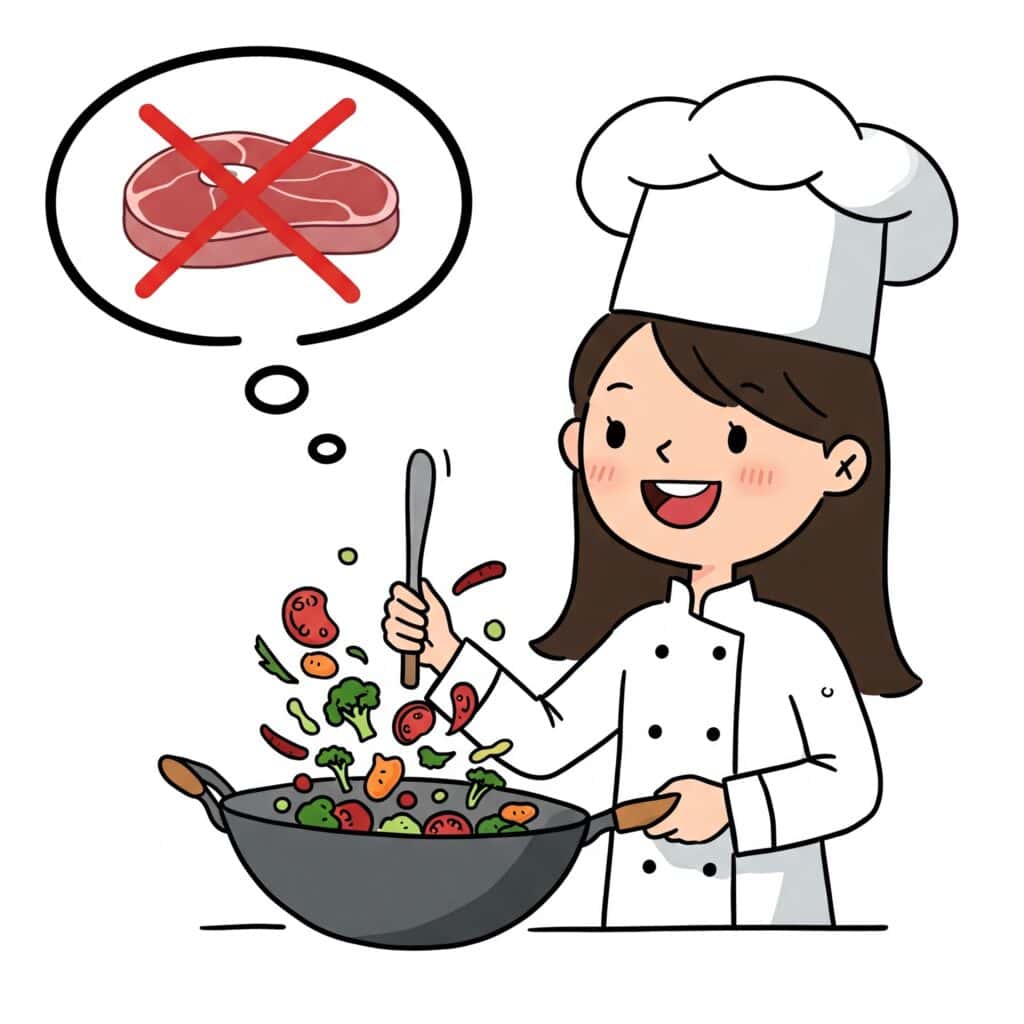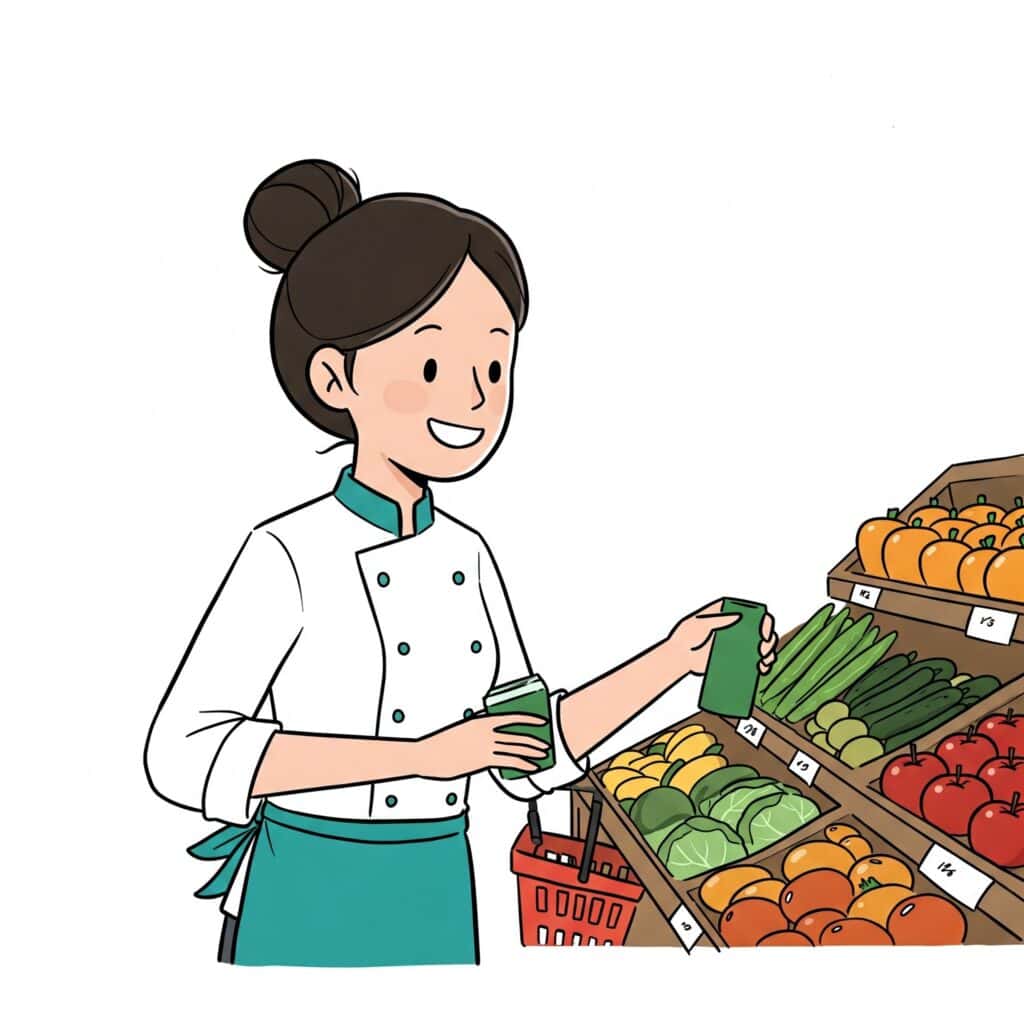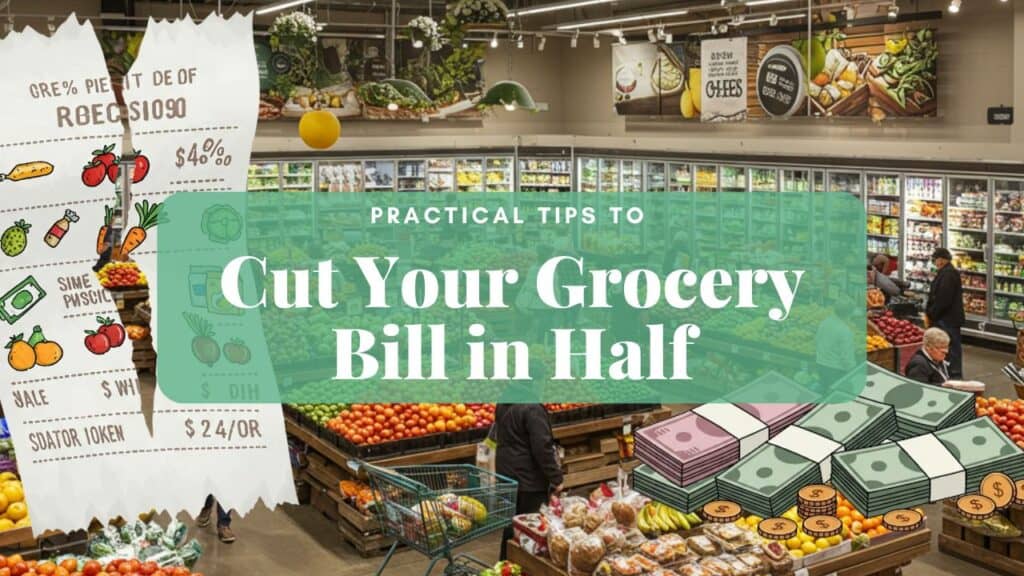In this article we are going to cover practical tips to cut your grocery bill in half. Are you tired of your grocery bill skyrocketing every month? Many average families and households struggle with rising food expenses. The first step is to track your spending and understand your total amount of grocery costs. Last month’s spending can be an eye-opener for managing your monthly budget.
1. Get a Wake-Up Call
Begin by reviewing your credit card or bank statements. Tracking your grocery bill is the first step to controlling your grocery costs. Look at your unit prices, sale prices, and even whole foods spending. This simple habit shows you where your money goes and helps prevent impulse purchases.

2. Check Your Pantry and Freezer
Before heading out for grocery shopping, inspect your well-stocked pantry and freezer. You may already have basic ingredients, pantry staples, and even leftover food. Avoid stockpiling a lot of food that leads to food waste. Use what you have before buying more.

3. Modify Your Recipes
Don’t stress if a new recipe calls for ingredients you don’t own. Swap simple ingredients or use leftover food. This is a great way to prevent extra trips to the grocery store and avoid impulse buys. Experiment with new recipes and store brands for a good deal.

4. Plan Your Meals Ahead
Effective meal planning is the easiest way to keep your grocery budget in check. Create a shopping list for the week’s worth of meals. A planned grocery list helps you steer clear of impulse purchases and ensures you shop at the right local store or online shopping sites that offer delivery services.

5. Embrace Batch Cooking
Batch cooking or meal prepping is a practical way to save time and money. Prepare a homemade meal or even your own bread in advance. Freezing meals for the next day or later provides the added benefit of avoiding takeout costs. It is one of the best ways to manage your food expenses.

6. Cut Down on Meat
Meat is often one of the biggest grocery costs. Try having one or two meatless meals each week. Replace expensive dairy products and meat with dry lentils and beans. This switch can reduce your grocery bill while offering nutritious meals at a better price.

7. Use Dry Lentils and Affordable Staples
Dry lentils are nutritious and often cost half price compared to meat. They offer a great deal for any food budget. Buying these pantry staples from discount grocery stores or even dollar stores saves much money over time.

8. Limit Specialty Drinks
Specialty drinks and cooking oil can sneak extra costs into your food budget. Instead, try bulk tea or water from a soda maker. Reducing these expenses is a good way to free up cash for fresh produce and local farmers’ products.

9. Compare Prices and Shop Sales
Always do a price comparison between different stores. Check unit prices, sale prices, and even yellow sticker items during double coupon day. Many local grocery store chains and whole foods offer special prices on store brands. Look for the best deals and good prices at discount stores and local farmers markets. Over time you will be able to find the best prices and most affordable grocery prices.

10. Buy Only What You Need
Stick strictly to your shopping list. Avoid impulse buys that lead to a stockpile of food and food waste. Purchasing just the right amount of food for the week prevents leftovers and helps maintain your monthly budget. This simple strategy keeps your grocery shopping efficient.

11. DIY When Possible
Making your own pasta sauces, bread, or even dairy products is a smart alternative to expensive store brands. A homemade meal not only tastes better but also cuts grocery costs. DIY projects are practical ways to use basic ingredients and reduce your overall grocery bill.

12. Track Your Spending Regularly
Keep an eye on your grocery spending by using apps or a simple spreadsheet. Monitor both in-store shopping and online shopping expenses, including delivery services. This ongoing review can alert you to impulse purchases and help you find the best deals across different stores.

Watch My Video On How To Cut Your Grocery Bill In Half – 12 Practical Tips To Save You Money
Healthy Budget Foods to Consider
- Oats and Rice: A great way to stretch your food budget.
- Dry Lentils and Beans: Nutritious and available at half price.
- Carrots, Bananas, and Fresh Produce: Always shop sales for local produce and real food.
- Frozen Vegetables and Berries: Excellent alternatives to fresh food with special prices.
- Pantry Staples: Items like pasta sauces, cooking oil, and dairy products from discount grocery stores.
- Additional Finds: Check out local farmers, farmers markets, local farmer’s markets, small gardens, and even dollar stores to snag good deals on a lot of food.
Conclusion: How To Cut Your Grocery Bill In Half
By following these 12 practical tips, you can cut your grocery bill in half while keeping your grocery shopping stress-free. Use meal planning, price comparisons, and batch cooking as your first step toward a smarter food budget. Enjoy fresh produce from local farmers, shop sales, and even try online shopping or delivery services when the time is right.

These are some of the best ways to save a lot of money. With these strategies, managing your grocery budget is achievable, ensuring your average person or average household spends less while enjoying nutritious meals. Happy saving and happy cooking!




